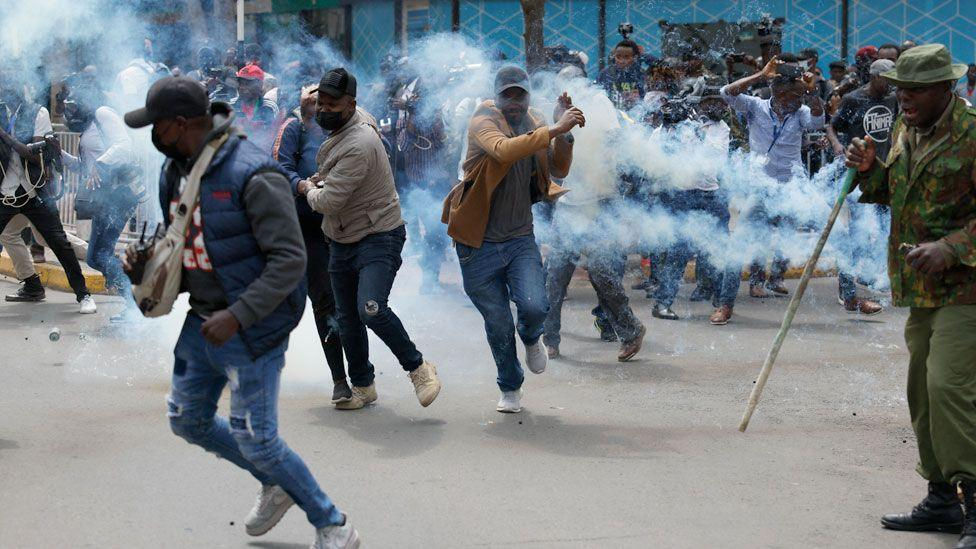Is The Death Penalty Ever Justified? Part 1
- Beryl Aidi
- Jan 16, 2024
- 4 min read
Updated: Jan 24, 2024
Navigating the murky waters of the death penalty

Photo by Tingey Injury Law Firm/Unsplash
“You’re killing an innocent man.”
Those were the haunting last words of Daniel Lewis Lee, said to an Associated Press journalist through the glass barrier of the execution chamber, as the executioner gave him the lethal injection that would kill him within minutes. This was his punishment for the murder, in the late 1990s, of a gun dealer, his wife and young daughter in Arkansas, USA. Though he claimed innocence, the court found him guilty despite numerous appeals.
The death penalty remains a thorny issue because of the high stakes involved and its finality, once carried out. Where there is no conclusive evidence, it is not always easy to tell if a murder suspect is guilty of the crime. Sometimes witnesses lie, defendants lie and also sometime the prosecution lies especially because they must find a perpetrator. In which case, if a person is convicted of murder and sentenced to death, it is an irreparable damage should the death penalty ultimately be carried out.
Sometimes indeed, there is evidence of guilt in a murder having happened, either accidentally or intentionally. In either case, a convict can end up with a death sentence. But really, is the death penalty ever justified?
Convicted for an accident
In 2017, Amnesty International learnt of Magai Matiop Ngong a young South Sudanese boy who was facing the death penalty. His dream was always to become a lawyer and musician when he finished school. In 2017, when he was just 15 years old, Magai had been arrested and handed the death sentence by the South Sudanese High Court for causing the death of his cousin.
According to Magai, the death of his cousin was an accident which occurred when his cousin and a friend who were in an argument started fighting. He tried to stop them from fighting but his efforts were fruitless. He then took his father’s rifle and shot in the air to stop the fight. The bullet hit a wall and bounced off it then hit his cousin who died from that bullet wound.
Magai was arrested, tried and subsequently sentenced to death. This was a gross violation on several levels under the international law. First of all,at the time of the incident, he was child. The international human rights law prohibits the death penalty against people under the age of 18. This means that children are not supposed to be given the death sentence. Even if they grow up to be adults while still in custody, if the crime was committed as a child, internal law prohibits the death penalty against children.
Given that according to Magai, his cousin's death was accidental, this should have been considered in the sentencing. If evidence clearly shows accidental death, should the person convicted of causing it be given the maximum sentence? One begins to question whether in such cases the rights of arrested persons and a fair trial were ever considered.
In July 2020, thanks to persistent campaigning, advocacy and good legal representation, the South Sudanese Court of Appeal overturned the death sentence that had been pronounced against Magai. After his release, the boy received counseling and mentorship to help him be rehabilitated back into society and become a responsible young adult.
There are many stories of people who were convicted of crimes they did not commit, crimes that would attract the death penalty where it is still practiced, but who after many years of advocacy and legal arguments are eventually acquitted when there is no evidence of guilt. Carrying out the death penalty against such people is committing a crime by killing them.
Ill motives, wrongful conviction
At times other motives have played a key role in getting innocent people convicted of offenses punishable by death. These can range from racism to warped political or religious goals and sometimes the most impacted are people with low socio-economic status. Take for instance, the case of Mr. Jesse Johnson who spent 25 years on death row for a murder that the prosecutor could not prove he committed. Some witnesses believe his conviction was motivated by racism.
A witness claimed that the police refused to take her testimony placing a white man at the scene of the murder. According to the witness, Ms. Patricia Hubbard, the police said a black woman had been murdered and a black man was going to pay for it. Speaking with defense investigators in 2013 while they were reinvestigating the case and, Ms. Hubbard told them that she saw a white man flee Ms. Thompson’s apartment on the night of her murder after she heard loud arguing.
Mr. Johnson was convicted purely on circumstantial evidence just because his fingerprints were found in the victim’s house, and rightfully so because he and the victim were friends. More than two decades later, DNA evidence would prove that he could not have committed the murder.
Forget the injustice of spending a quarter century behind bars for a crime he did not commit, what if the death sentence had been carried out? Mr. Johnson, who was released from Marion County Jail in Oregon, USA, on 5 September 2023, would have lost his life for being black and being given the ultimate irreversible punishment.
As long as the death penalty continues to be used as a form of punishment, not only does it raise haunting moral questions about the injustice to the innocent but also the increasingly untenable reasons for its practice which we will tackle in part two of this discussion.



Comments